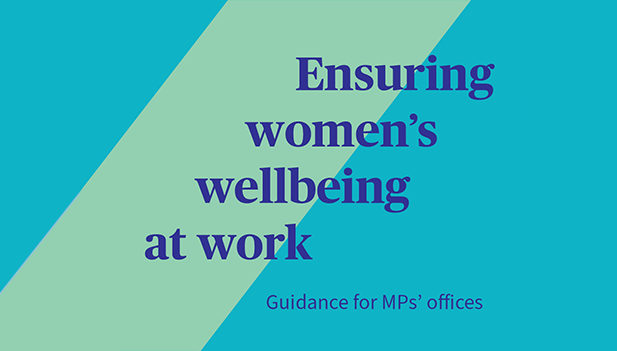Building a culture of care
Showing you care about your employees’ health and wellbeing goes a long way. A recent study by AXA Health revealed that employees are three times more likely to have flourishing mind health when they feel supported by their employer during difficult situations, compared to those who are not satisfied with their company’s support.1
1. AXA Health UK Mind Health Report 2024. Based on 2024 Mind Health Study sample of 16,000 participants aged between 18-75 across 16 countries including the UK.
Supporting women’s and men’s health at work
Giving employees access to vital mental and physical health support can lead to reduced stress, improved overall wellbeing and a lower risk of certain illnesses.
39% of employers said that male employees often wait until a health problem becomes severe before talking to their line manager or HR department.2
2. Employee Benefits – Men’s Health

Workplace guide
Our workplace guide can help you support employees across some of the most personal challenges they might face, from infertility to the menopause, pregnancy to mental health. Its insights and tips are designed to ensure every employee feels able to navigate life’s most personal journeys and feel their best, both in and out of work.

Women’s wellbeing at work: Our guidance for MPs’ offices
We’re seeking change in workplace support for women’s health. Prepared by AXA Health with support from Fawcett Society, Wellbeing of Women and Bloody Good Period, this guide sets out our actionable recommendations for Parliament.
The guide focuses on three key areas:
- menstruation
- menopause
- fertility

UK mind health workplace report5
Our UK mind health workplace report explores three emerging workplace themes:
- Supporting our younger workforce who have the highest rates of loneliness and social isolation, alongside symptoms of stress, anxiety, and depression.
- Where to place focus in support of line managers, ensuring they are well-equipped to help themselves and others too.
- Creating a supportive, caring workplace environment given the positive impact to wellbeing, loyalty, and performance.
5. Based on 2024 Mind Health Study sample of 16,000 participants aged between 18-75 across 16 countries including the UK.
Expert insight to guide your business
Hear from our leaders and industry experts on the hot topics shaping your people strategy.
Following a period of poor health, women experienced a number of negative feelings with it including feelings of helplessness (46%) and less motivation at work (43%).6
6. AXA Health – The consequences of neglecting women’s health in the workplace, AXA Health 2023

Resources to drive health engagement
Select from our complimentary resources and get your workforce fit, well and fired up about staying healthy.
Stay informed
Our Business Health Centre is your source of inspiration and information from healthcare and employee engagement experts, offering you support and valuable insights to help guide your business strategy.
Stay connected
Sign up to Business Health Insight – our monthly newsletter including tips on how to improve the wellbeing of your employees.







